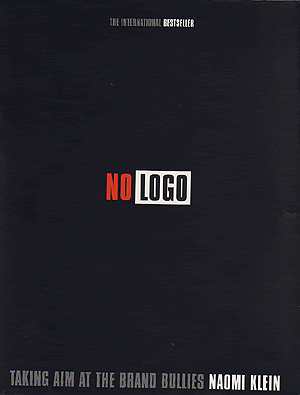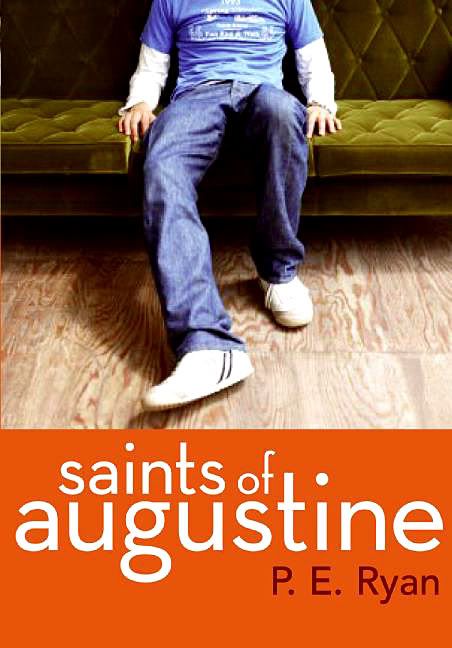Summary (from inside cover flap):
How did Bill Gates go from poster boy for the new economy to global whipping boy? How did the Nike swoosh - the marketing succes of the nineties - become equated with sweatshop labour? Why are some of the most revered brands in the world finding themselves on the wrong end of a bottle of spray paint or the targets of computer hacks and anti-corporate campaigns? What does this all mean to multinational marketing and global interdependance - and what does it tell us about the future of our communities and the world we live in?
Equal parts cultural analysis, journalistic exposé, and mall-rat memoir, from one of the most insightful and respected young commentators in North America today, No Logo explains the bad mood rising against the brands. Without realizing it, multinationals have militarized their opposition. The corporate hunger to homogenize our communities and monopolize public expression is creating a wave of public resistance, highlighted by the guerilla tactics of the angry young. No Logo plots the story of rebellion in the face of our branded world, placing it in clear economic and pop-historical perspective.
In this exhilarating, eye-opening and very human story, Naomi Klein leads us through ecclesiastic Nike stores to sweatshop factories in Indonesia and the Philippines. She brings us into North American malls packed with ready-to-wear lifestyles. She introduces us to a broad range of global activists taking aim at the brand bullies: ad busters who jam corporate billboards, the campaigners who took on Shell Oil in the Niger delta, the forces behind the McLibel trial in London, the computer hackers who have declared war on the systems of any multinationals violating human rights in Asia.
Naomi Klein grew up under the marketing microscope and in the age of jobless recoveries. Now, armed with extensive research and her lucid, candid approach, she encovers the betrayal of the central promises of the new economy. In a compelling combination of first-hand reporting and provocative, humorous, 0ften personal anecdotes, she tracks the reasons behind the rise of anti-corporate activism and explains just why this emerging global movement is a force to be reckoned with.
My Thoughts
"Free speech is meaningless if the commercial cacophony has risen to the point where no one can hear you." -- Thank you Naomi Klein for the quote I am totally going to use to intro my media and democratic values essay. =)
But hey, let's talk stuff that's relevant to everyone, not just girls applying for a Dalton Camp Award. I think I've been asked more questions about this book than almost anything else I've read all year. Possibly attributable to the eyecatching cover but I suspect it has a little more to do with the fact that I would absolutely not stop reading this book. Copy down Math Statistics and Probability notes? I'd rather read No Logo. Listen to my French teacher talk about our latest piece of textbook work? No Logo. Outline my English essay? No Logo.
You may have gathered this was a rather absorbing book.
The inside cover flap offers a better summary than I ever could (sample answer to my math teacher on what I was reading - 'Umm it's about alot of things! Adbusting and labour issues and outsourcing and corporate hiring practices and and and...Well it's mostly about the anti-corporatism movement. Read it!") so I'll move right into the discussion.
No Logo is a really amazing book. It's alot larger than most non-fiction I read and I attribute the fact that I actually finished to how interesting it was. The first section didn't teach me too much that was new - I know ads are getting scarily ubuquitous, the other day I was flipping through Vibe magazine and had to go through twenty pages of ads before seeing anything remotely resembling an article - but I'd never heard about the ways people were combatting it. And sure I've heard the whole 'Walmart is evil' refrain but no one's ever explained to me why as clearly and convincingly as Naomi Klein did. I've heard about sweatshop labour but I've never connected that to the Free Economic Zones I learned about in history or thought that rising unemployment issues in Canada/US are partially attributable to outsourcing by large corporations. This book was just such a huge eyeopener to me. All of these issues and ideas that I was vaguely familiar with were laid out in a clear and accessible format with oodles of convincing examples. I'm peddling it to everyone I know and I've already picked up a copy of another book by her, Fences and Windows: Dispatches From the Front Lines of the Globalization Debate. No Logo gets my full and unreserved recommendation.
I recommend this book for: Anyone interested in the anti-corporatism movement, those in the market for interesting non-fiction, those interested in ideas of social justice, political science or economics students.
Rating: A+

